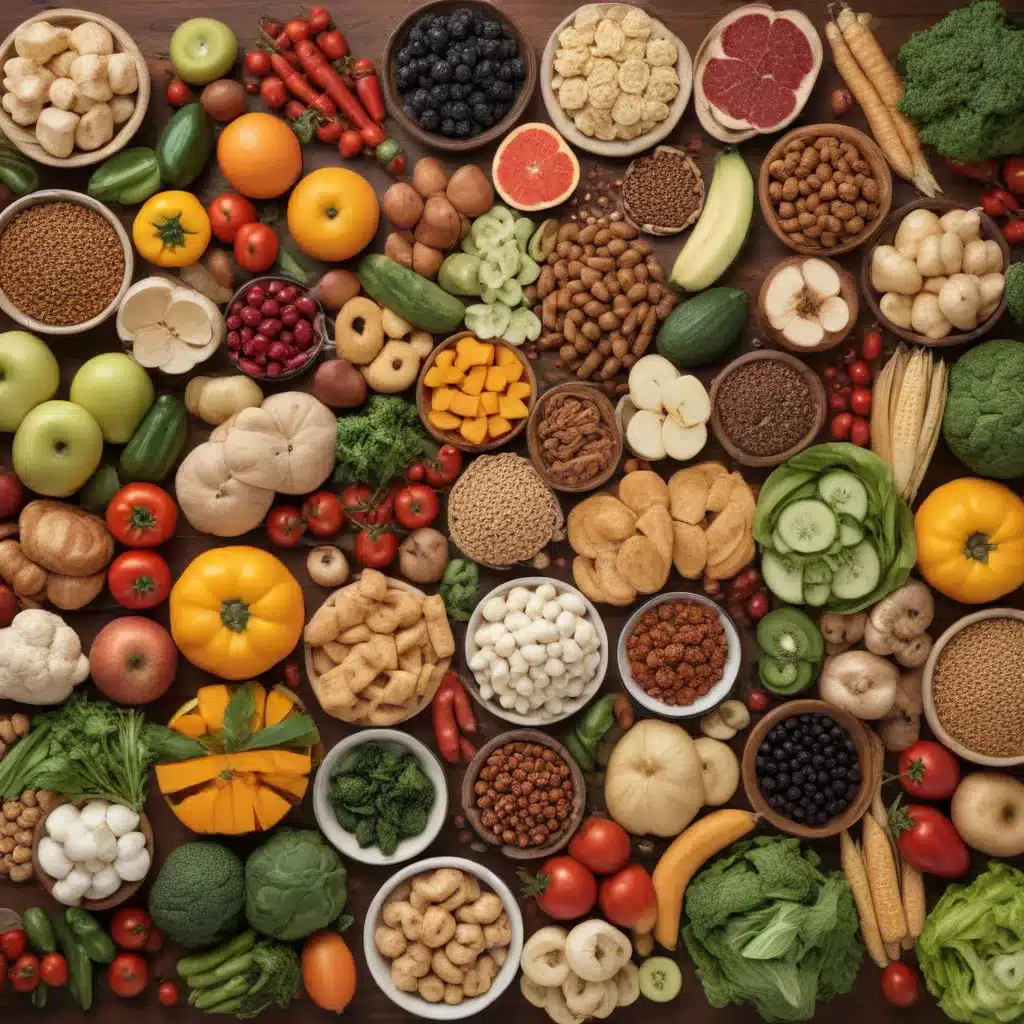
Delving into the Diverse Flavors that Shape Our Worldview
Food has long been a cornerstone of human civilization, serving as both a means of nourishment and a vessel for cultural expression. As culinary professionals, we have a unique opportunity to explore the intricate tapestry of flavors, techniques, and traditions that have evolved across the globe. By understanding the interplay between food science and cultural identity, we can gain valuable insights into the rich diversity that defines our world.
The Culinary Conduit: Food as a Catalyst for Cultural Exchange
At the heart of this exploration lies the recognition that food is not merely a source of sustenance, but a medium for social and cultural exchange. Across communities, cuisines have served as a point of contact, allowing individuals to engage with and learn about unfamiliar cultures. The very act of sharing a meal can foster a sense of connection, as we find common ground in the universal human need for nourishment.
As Dr. Norenzayan, a renowned researcher in the fields of cultural evolution and social psychology, eloquently states, “Food has the remarkable ability to bring people together and create a sense of connection. It offers a unique opportunity to learn about different cultures and broaden our understanding of the world.” By delving into the diverse culinary traditions that exist, we can gain insights into the history, traditions, and social structures of various societies.
Unraveling the Tapestry of Flavor and Identity
One of the most intriguing aspects of this intersection is the way in which language and cultural attitudes shape our perceptions of food. As Dr. Hanser, a sociologist who has studied the intersection of food, gender, and power dynamics, observes, “A culture’s food vocabulary is a window into its values and priorities.” The ways in which we describe and categorize different ingredients, dishes, and culinary experiences can reveal deeply ingrained beliefs and societal norms.
For instance, consider the differences in the way French and American research participants respond when asked to reflect on fried eggs. The French tend to associate the dish with “breakfast,” while Americans are more likely to think of “cholesterol.” This linguistic disparity reflects the varying cultural attitudes towards food, with the French emphasizing the culinary experience and the Americans prioritizing nutritional concerns.
Embracing Diversity through Culinary Exploration
As we navigate the complex relationship between food and identity, it becomes clear that the globalization of cuisine has had a profound impact on cultural traditions and the way we perceive our own identities. Shirley, a second-generation Chinese Canadian researcher, highlights the importance of understanding the diverse food cultures that exist within and between communities.
“Communities aren’t monoliths and that’s reflected in the diversity of food and eating practices that exist. People can have different ways of making the same dish, and we can learn a lot about a particular group or individual’s history and culture by being curious about these differences.”
This acknowledgment of the nuances within culinary traditions is crucial, as it allows us to move beyond superficial understandings and genuinely engage with the rich tapestry of flavors and stories that define our world.
Cultivating Inclusive Culinary Experiences
Institutions like the University of British Columbia (UBC) have a vital role to play in promoting diversity, inclusion, and understanding through the lens of food. As Dr. McCormick, a modern Japanese culture historian, suggests, educational programming that highlights the cultural significance of food can be a powerful tool for fostering cross-cultural exchange and appreciation.
“Food is universal; everyone eats, and we all have experiences with food that hold cultural and personal significance. Educational programming can highlight these experiences by providing opportunities for reflection and sharing.”
By creating spaces for community-engaged programming, UBC can leverage the accessibility and universality of food to build bridges between diverse groups and share the stories embedded within the dishes we consume.
Embracing the Complexity of Culinary Identities
As we delve deeper into the intersection of food science and cultural identity, it becomes clear that the relationship is multifaceted and often nuanced. Gender roles, power dynamics, and societal values can all be reflected in the ways in which food is prepared, consumed, and perceived.
Dr. Hanser’s insights on the gendered nature of food culture highlight this complexity. “We see this in everything from who prepares food, and where ( for example, women dominate home food preparation and men dominate commercial food preparation) to who eats what, and how much—women tend to be far more restrictive in what they eat, for instance.”
Acknowledging and understanding these intricate cultural dynamics is crucial in our pursuit of creating inclusive and equitable culinary experiences.
Cultivating a Sustainable and Culturally Inclusive Food Future
As we move forward, it is essential that we approach the intersection of food science and cultural identity with a spirit of openness, curiosity, and respect. By embracing the diversity of culinary traditions and the stories they hold, we can foster a more inclusive and sustainable food future.
At Kitchen Warrior, we believe that this journey of exploration is not just about expanding our palates, but about deepening our understanding of the world around us. Through the lens of food, we can uncover the rich tapestry of human experience, celebrating the unique cultural identities that have shaped the flavors we cherish.
Join us as we continue to delve into the fascinating interplay between food science and cultural identity, uncovering the profound ways in which the culinary arts have the power to connect, educate, and empower us all.


